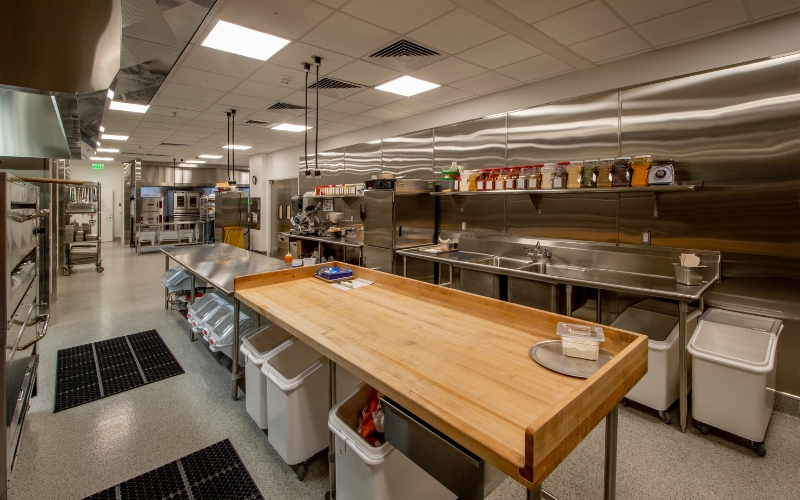International Infection Prevention Week (IIPW) is a global event dedicated to raising awareness about the importance of infection prevention. It is observed from October 13-19, 2024. Sponsored by the Association for Professionals in Infection Control and Epidemiology (APIC), IIPW shines a spotlight on the role of infection preventionists, healthcare workers, and others on the front lines of preventing the spread of infectious diseases.
In an era where health and safety are more crucial than ever, this week serves as a reminder that we all play a part in infection prevention — whether we’re managing a healthcare facility, running a business, or simply going about our daily lives. Let’s explore why this week matters, the significance of infection prevention across industries, and how we can each contribute to safer, healthier environments.
Why Infection Prevention Matters
Infection prevention goes beyond hospitals and healthcare facilities. It’s about maintaining clean and healthy environments in schools, offices, food processing plants, and even our homes. The need for robust infection control strategies is clear as the world grapples with COVID-19, flu season, and other infectious diseases.
For instance, healthcare-associated infections (HAIs) are a severe issue in hospitals and clinics. The CDC estimates that 1 in 31 hospital patients has at least one HAI at any given time. But infection prevention extends to other industries, too. Schools face high rates of illness spread, and food processing plants must maintain rigorous hygiene standards to prevent contamination. Across sectors, infection control is critical to protecting public health.
The Role of Infection Preventionists
A key focus of IIPW is to honor infection preventionists—the dedicated professionals who work tirelessly to reduce the risk of infections in various settings. These experts ensure that best practices in hygiene, sanitation, and disinfection are followed, whether working in hospitals, long-term care facilities, or community health centers.
Infection preventionists play a crucial role in developing and implementing protocols that reduce the spread of diseases, such as hand hygiene campaigns, surface disinfection routines, and strategies for managing antibiotic resistance. Their work is behind the scenes, but it profoundly impacts reducing illness and saving lives.
Key Sectors
Infection prevention isn’t limited to healthcare; it touches every aspect of our lives. Here’s how it plays out across different industries:
- Healthcare: Hospitals, urgent care clinics, and long-term care facilities are constantly battling healthcare-associated infections. Proper sanitation, sterilization, and air quality measures are essential in keeping patients safe.
- Education: Schools are hotspots for germ transmission. Simple measures like promoting handwashing and ensuring regular disinfection of high-touch surfaces can significantly reduce absenteeism due to illness.
- Food Processing: Preventing contamination is essential to keeping consumers safe in food manufacturing and processing. Infection control measures in these settings help prevent outbreaks of foodborne illnesses, which can be devastating for public health and business alike.
- Workplaces: Strong infection prevention protocols benefit offices, gyms, and other communal spaces. When businesses prioritize cleanliness and indoor air quality, employees and visitors can stay healthier.
How We Can All Contribute
Everyone has a role to play in infection prevention. Small actions—like washing hands regularly, properly wearing personal protective equipment (PPE), and following vaccination guidelines—can greatly impact community health. Employers and facility managers can also invest in tools and technology that support cleaner, safer environments. Air quality, for example, is a significant factor in infection control, as many pathogens can be spread through the air.
The Future of Infection Prevention
As we look ahead, innovation continues to shape the future of infection control. New technologies are being developed to better prevent the spread of pathogens, including advancements in air purification, surface disinfection, and sterilization techniques.
One such innovation is Dry Hydrogen Peroxide (DHP®) technology, which continuously reduces microbes in the air and on surfaces.
Unlike traditional cleaning methods, DHP operates 24/7, providing ongoing protection in occupied spaces. It offers a safe, automated solution to help reduce airborne and surface pathogens, complementing existing infection prevention efforts. For industries like healthcare, education, and food processing, DHP is a valuable tool in creating healthier, more resilient environments.
Celebrating Infection Prevention and Looking Ahead
International Infection Prevention Week is a time to celebrate the incredible progress made in reducing the spread of infectious diseases, but it’s also a time to acknowledge the ongoing work needed to protect our communities. Infection prevention is a shared responsibility, and together, we can make a lasting impact in keeping our environments safer.
Let’s use this week as a call to action — to reaffirm our commitment to proper hygiene, sanitation, and innovative solutions that reduce the risk of infection. Whether you’re a healthcare worker, a teacher, a business owner, or a concerned citizen, your actions contribute to a healthier world.
To speak with an IAQ expert from Synexis, fill out this form and we’ll be in touch as soon as possible.
And to learn more about Synexis, click here.









